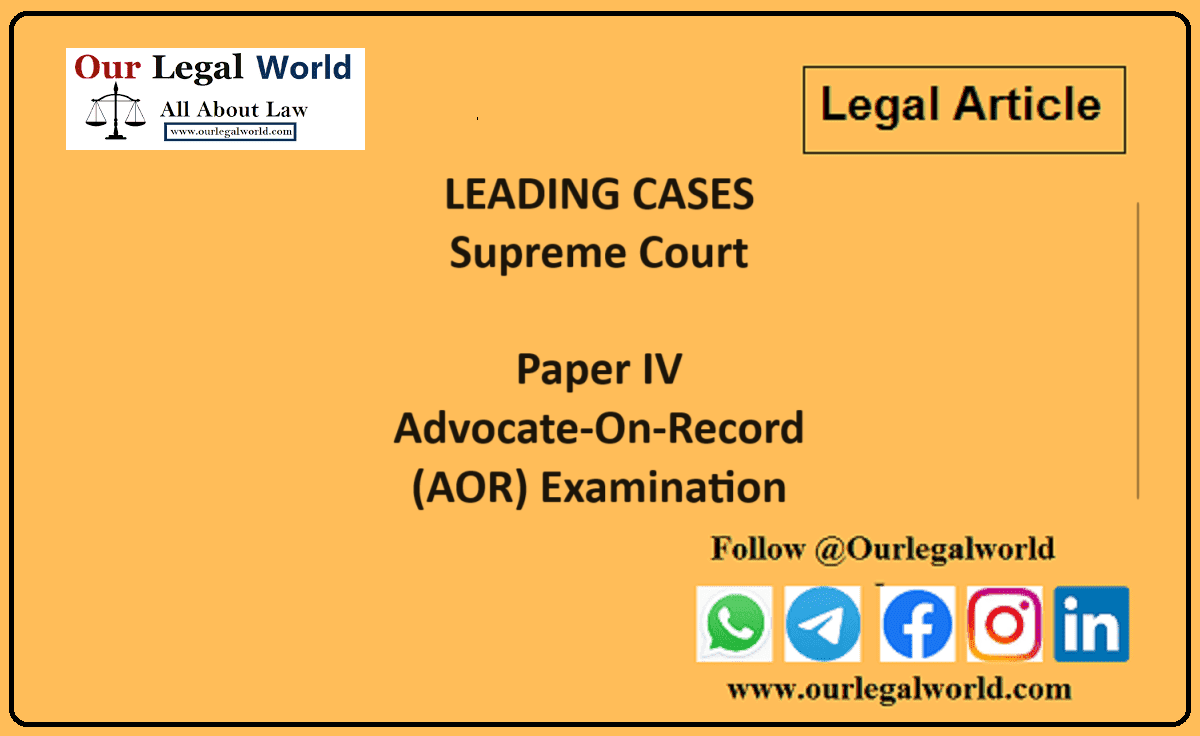Definition, Purpose and Sources of Administrative Law
Definitions
There is a great divergence of opinion regarding the definition of the concept of the administrative law. This is because of the tremendous increase in the administrative process that it makes impossible to attempt any precise definition of administrative law which can cover the entire range of the administrative process. Hence one has to expect differences of scope and emphasis in defining administrative law. This is true not only due to the divergence of the administrative process within a given country but also because of the divergence of the scope of the subject in the continental and Anglo–American legal systems.
Also Read: Legal Notes: Legislation and its Types:- Our Legal World
However, two important facts should be taken into account in an attempt to understand and define administrative law.
Firstly, administrative law is primarily concerned with the manner of exercising governmental power. The decision-making process is more important than the decision itself.
Secondly, administrative law cannot fully be defined without due regard to the functional approach. This is to mean that the function (purpose) of administrative law should be the underlying element of any definition. The ultimate purpose of administrative law is to control the exercise of governmental power. The control aspect impliedly sheds some light on the other components of its definition.
“Administrative law is the law relating to the administration. It determines the organization, powers and duties of administrative authorities.” -Sir Ivor Jennings
Massey criticizes this definition because it fails to differentiate between administrative and constitutional law. It lays entire emphasis on the organization, power and duties to the exclusion of the manner of their exercise. In other words, this definition does not give due regard to the administrative process, i.e. the manner of agency decision-making, including the rules, procedures and principles it should comply with.
“Administrative law is that branch of public law which deals with the organization and powers of administrative and quasi administrative agencies and prescribes the principles and rules by which an official action is reached and reviewed in relation to individual liberty and freedom” – I.P Massey
Purpose of Administrative Law
I.P. Massey (I.P. Massey, Administrative Law, 5th ed.) identifies the basic bricks of the foundation of administrative law as:
- To check abuse of administrative power
- To ensure to citizens an impartial determination of their disputes by officials so as to protect them from unauthorized encroachment of their rights and interests.
- To make those who exercise public power accountable to the people.
To realize these basic purposes, it is necessary to have a system of administrative law rooted in basic principles of rule of law and good administration. A comprehensive, advanced and effective system of administrative law is underpinned by the following three broad principles:
- Administrative justice, which at its core, is a philosophy that in administrative decisions the rights and interests of individuals should be properly safeguarded.
- Executive accountability, has the aim of ensuring that those who exercise the executive (and coercive) powers of the state can be called on to explain and justify the way in which they have gone about that task.
- Good administration- Administrative decisions and actions should conform to universally accepted standards, such as rationality, fairness, consistency and transparency.
Sources of Administration Law
Administrative law principles and rules are to be found in many sources. The following are the main sources of administrative law in India.
· The Constitution
· Legislation Acts and Statutes
· iii. Delegated Legislation
· iv. Judicial Decision
Cases:-
- Menaka Gandhi v. Union of India (Natural Justice)
- Ram Jawaya Kapoor (separation of power)
- Vodafone case (taxation laws can’t have retrospective effect)
- CNG in Delhi (judicial action)
Purpose and Sources of Administrative Law







![Tax Law Internship at Legum Attorney [Chamber of Ashish Panday], Delhi : Apply by 15th May 2025](https://www.ourlegalworld.com/wp-content/uploads/2025/05/IMG_0113-min.png)

